Best Formula For Gassy Babies
This post may contain affiliate links. As an Amazon Associate, I earn from qualifying purchases. Please read my disclosure.Does your baby suffer from painful gas, and are you looking for solutions to soothe their digestion and make them comfortable? Look no further than my comprehensive, parent-friendly guide to the best formula for gassy babies. Based on my own expertise as a health coach and mom, I will discuss what causes gas in babies, how to help them feel better, and the best baby formula for gas and fussiness.
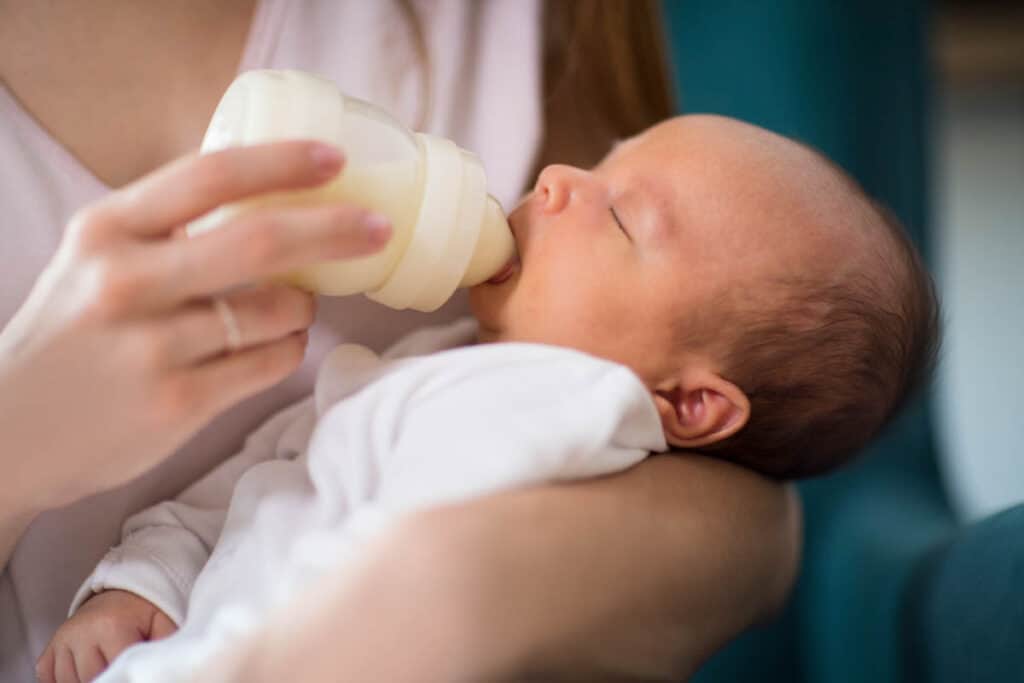
If your infant is fussy, bloated, or gassy, or shows other signs of digestive discomfort after eating, they might be having trouble with digestion and developing gassiness as a result.
Although I know it can feel overwhelming and concerning when your baby is in pain and upset, discomfort brought on by gassiness is actually quite common for infants. Some babies seem more impacted and have more discomfort than others, but babies have immature digestive systems that are still developing. Because of this, many infants experience more gas or digestive discomfort after eating.
When my kids experienced gas, I tried many things to help ease my little one’s symptoms, from how I fed them to the type of formula I gave them. Read on to learn the common causes of gas in babies, how to help them, tips for breastfeeding parents who are considering changing to formula to help their child’s symptoms, and the best formula for sensitive stomachs and gas.
But First, A Disclaimer
As a board-certified health coach and certified nutritionist, I support evidence-based products and ingredients rooted in science. Using my background in nutrition, extensive research, consultations with experts, and my own experience giving my two kids formula, I arrived at this list of the best formulas for acid reflux in this guide.
Though I may receive a commission (at no extra expense) if you purchase through some of the affiliate links provided, I only recommend products I’ve researched, evaluated, consulted experts on, and would feel comfortable giving to my own two children.
As always, I only share products that are the highest quality and that can help you and your family the most. By purchasing any of these products from the links below, you help keep this blog running, so thanks for your support!
Remember that every baby and situation is different, especially regarding formula. Always consult your child’s pediatrician before starting on or changing to a new formula. My recommendations are not a substitute for professional medical advice, diagnosis, or treatment.
Formula prices are current at the time of this publication but are subject to change.
The Best Baby Formulas For Gas
If you’re short on time, I have you covered! This is my list of the best formulas by type that help manage gas and fussiness. Scroll down to learn more about each of these formulas in detail!
Standard Cow Milk Formulas
- Bobbie Organic Infant
- HiPP Dutch
- Aussie Bubs Organic Grass Fed
- ByHeart Whole Nutrition Infant
- Kendamil Organic
Gentle Formulas
- Bobbie Organic Gentle
- HiPP Comfort
- Similac Total Comfort
- Enfamil Gentlease
- Gerber Good Start SoothePro
Goat Milk & A2 Milk Formulas
Hypoallergenic Formulas
Alternative Protein Formulas
Signs Your Baby Has Gas
There are many signs that your baby may have gas. A few of the most common signs are below. If you ever have any concerns about the severity of your baby’s gas or discomfort or are wondering if colic or food allergies are the culprits of your child’s digestive distress, reach out to your child’s pediatrician for diagnosis and treatment.
#1 | Fussiness Or Colic
Colic, though it may sound intimidating or scary, is defined as fussiness and crying for three hours or more a day for at least three weeks (source). Colic usually occurs at the same time every day. If this happens to your baby, it indicates something is causing discomfort. While there are various causes for colic, many experts believe that uncomfortable digestion may factor into it (source).
#2 | Excessive Crying
If you notice your baby excessively crying, particularly after feedings, this could indicate gas issues. Pay attention to the timing and duration of these cries. Excessive crying can also cause gas due to swallowing air.
#3 | Abdominal Bloating Or Distension
Something is likely going on if you see visible bloating or distention of the tummy area! You can take this a step further and see if their belly is sensitive to the touch or if gas is released after a tummy massage (source).
#4 | Burping Or Passing Gas Frequently
Baby gas itself is not an issue. Excess gas or gas that causes pain or discomfort is usually problematic. If your baby burps frequently, passes gas often, spits up excessively after eating, or cries before processing their gas in any of these ways, they may have digestive discomfort brought on by gas.
#5 | Discomfort While Eating
If you notice discomfort or tension in your baby while they eat or refusal of the bottle or breast when they are otherwise showing signs of hunger, they are likely uncomfortable while they eat. Other signs of discomfort while eating are squirminess, fidgeting, or inability to focus while feeding.
#6 | Other Symptoms
Other signs that your baby may be suffering from painful gas are having a red face, clenched fists, and pulling legs towards their tummy (source).
What Causes Gas In Babies?
Now that we have reviewed symptoms of painful gas in infants, let’s review a few of the most common issues that cause this gas.
#1 | Immature Digestive System
Newborn digestive systems are not used to processing food. The esophageal sphincter that is responsible for keeping food in a baby’s stomach is usually underdeveloped in the first year, causing spit-up and acid reflux (source).
As your baby’s digestive system matures, it will more efficiently and comfortably process food, but it’s not uncommon for children to go through periods of uncomfortable digestion before they reach this point (source).
#2 | Overfeeding
Overfeeding a baby creates discomfort because the excess food overloads the digestive tract, making it hard for the child’s system to process the food efficiently. Overfed babies often swallow a lot of air, increasing discomfort and gas (source).
#3 | Swallowing Air While Feeding
Babies need the opportunity to release air while feeding. Many babies – whether breastfed or bottle-fed – can swallow excess air while feeding, causing painful gas (source). Burping your child throughout their feeding can help them release this gas before it builds up and causes discomfort. If you find that your baby is gassy, you may need to prioritize more frequent breaks to burp them throughout feeding. Experts recommend burping your baby once for every 2-3 ounces of milk or formula consumed (source).
#4 | Food Sensitivities Or Allergies
Occasionally, food sensitivities or allergies can cause gas and other digestive distress in babies. The most common dietary allergies in babies are cow milk allergy (CMA), cow’s milk protein allergy (CMPA), lactose intolerance, and soy allergy. Note only 3% of American infants are estimated to have food allergies (source); some parents begin eliminating foods from the breastfeeding parent’s diet or switching formulas before addressing other common causes of digestive discomfort. Always consult your child’s doctor for a proper food allergy diagnosis before switching to a different or hypoallergenic formula.
#5 | Changing Feeding Method
Recent changes in formula or switching from breastfeeding to formula can cause discomfort for some babies. Always discuss these changes with your pediatrician before making them for the smoothest transitions.
How To Soothe Gassy Babies
There are many ways to soothe gassy babies. Sometimes one method may work better than another, but it’s good to have these tools on hand to help whenever your baby has painful gas:
- Burping: As noted above, burping throughout the feeding process can help relieve gas as it builds up in your baby’s tummy, preventing further pain or issues.
- Begin Feedings Before Crying: Feed your child as soon as they show signs of hunger – such as sucking on their hands, smacking their lips, or opening and closing their mouth (source) – rather than waiting for them to cry. Crying can cause the baby to suck in more air, increasing the gas that they ingest.
- Feed Upright: Feeding your baby while their head is above their stomach, or sitting as upright as possible, can help move the food and gas, lowering the instances of gas (source).
- Tummy-Time: Whether you lay your baby down on their stomach on a blanket or play mat or hold them tummy-down on your forearm as you support its head and gently pat their back, gentle pressure on the stomach can help relieve gas pressure in infants. A gentle abdominal massage can also move gas through their system (source).
- Move Their Legs: Gently moving your baby’s legs in a bicycle motion or rhythmically working its legs up to its stomach and down simultaneously can also help process painful gas (source).
- Use A Vented Bottle: If your child is bottle-feeding, a vented bottle can help remove excess air from the milk or formula, reducing air consumption as they feed. Also, make sure that your child is using the right-sized nipple. Too slow or fast of flow can result in babies ingesting extra air as they feed.
Breastfeeding And Gassy Babies
Though many are quick to move first to eliminating food groups from the breastfeeding parent’s diet, the maternal diet is a fairly rare cause of gastrointestinal distress in babies (source). In fact, breastfeeding in the first few months of life decreases the chances of a child developing food allergies later in life (source).
That being said, if you or another parent are currently breast or chestfeeding your little one, experts recommend that you first address these common gas-causing factors before eliminating food groups (source):
- Latching Issues: Babies who do not latch securely enough often swallow more air when feeding (source). You can correct the latch by trying new breastfeeding positions or with the help of a lactation consultant. Aside from excess gas, signs of a shallow latch are clicking sounds as the baby feeds, nipple pain, or other discomfort while feeding (source).
- Strong Let-Down: This happens when the milk lets down quickly and forcefully. It can cause gas in babies because they can gulp or struggle to consume the high volume of milk, ingesting excess air in the process (source). Help babies deal with this by hand-expressing some milk before feeding, changing your nursing position, massaging your breasts before beginning nursing, and burping your baby often throughout feeding (source).
- Switching Sides Prematurely: The foremilk that comes out of the breast first is rich in lactose, whereas the hindmilk contains more fat and protein (source). If a baby is moved from one side to the other before consuming both the fore and the hind milk, they will have an abundance of lactose without the fat and protein to balance it out, creating lactose intolerant-like symptoms without the baby being lactose intolerant (source). To prevent this, let the child feed entirely off of one breast before switching them to the second breast, or present the second breast at the next feeding (source).
What To Look For When Choosing A Gassy Baby Formula
Not all baby formula is created equal, and it is important to be mindful of certain ingredients and classifications while on your search for the best gassy baby formula:
✅ Non-GMO and Organic: Look for a formula that is either USDA-certified organic or EU-certified organic. If not, you will want a formula that is non-GMO, as genetically modified organisms may be harmful to young children (source). Note that some hypoallergenic formulas cannot be certified organic due to the protein hydrolysis needed to break down the proteins. In these situations, look for formulas with all other non-GMO or organic ingredients whenever possible.
RELATED: THE BEST ORGANIC BABY FORMULA
✅ FDA-Approved: Or, approved by the EU body, the European Commission, to be a complete source of infant nutrition. You will know that the formula is approved by the FDA if it is on store shelves or available for purchase through legitimate online retailers. FDA or EU approval also ensures accurate product marketing and the safety of the formula ingredients. Never purchase a formula that hasn’t been approved by the FDA.
✅ No Sugar, Corn Syrup, or Sugar Solids: Lactose, whether organic or conventional, should be the main carbohydrate in baby formula unless the formula is lactose-free, hypoallergenic, or sensitive. Lactose is the main carbohydrate in breast milk, making it the best option whenever a child doesn’t have food allergies that prevent consumption of it (source).
✅ Whey-to-Casein Ratio: The whey-to-casein ratio of mature breast milk is 60:40. Experts explain that formulas with this ratio are the easiest to digest (source). Whenever possible, choose a formula that also has this ratio.
✅ Contains DHA and ARA: These are essential fatty acids, or omega fatty acids, that support brain, nervous system, and eye development (source). Whereas the FDA doesn’t require the addition of DHA, the European Commission does (source, source). Therefore, all European-made formulas will contain DHA (and likely also ARA), but you need to check American-made formula ingredient lists for their presence. Furthermore, look for formulas made with hexane-free DHA. Some DHA is extracted with hexane, a neurotoxin (source). To avoid it, look for cold-pressed or plant-based DHA and fish oil which are not processed with hexane.
✅ Includes Probiotics and Prebiotics: Probiotics are good-for-you live bacteria and yeasts (source). Prebiotics are what probiotics and other microorganisms in the gut feed off of (source). Though robust research is lacking, initial research points to probiotics’ ability to improve infant digestive function, making it smoother and more gentle (source). Prebiotics support the role of probiotics and are also known to help support the infant immune system (source). Breast milk contains probiotics and prebiotics (source), so I always recommend choosing a formula with them.
✅ No Palm Oil, Soy, Carrageenan, or Maltodextrin: Though palmitic acid and sustainable palm oil are okay, I prefer to avoid palm oil whenever possible because it limits good fat and mineral absorption (source). Soy products, unless necessary to avoid allergens, have also been studied to be problematic for infants (source).
Finally, carrageenan and maltodextrin are thickening agents in some formulas. Maltodextrin is sometimes necessary to add allergen-friendly carbohydrates to hypoallergenic formulas, but I recommend avoiding it whenever a hypoallergenic formula is not needed because it doesn’t have as many nutritional benefits as lactose (source). Carrageenan, on the other hand, is one I recommend avoiding at all costs since it causes inflammation and digestive problems, and even has connections to colon cancer (source).
RELATED: PALM OIL IN BABY FORMULA
✅ Suits Your Budget: Baby formula ranges in price and can be a significant expense, especially when there may be many other expenses associated with having a new baby. See the list of the best formula for babies with gas below for a complete breakdown of formula information so you can choose which works for your family’s budget while offering the desired nutritional benefits for your little one.
RELATED: THE BEST HYPOALLERGENIC BABY FORMULAS

Types Of Formula To Help With Gas
Unfortunately, there isn’t a one-size-fits-all best formula for gassy babies. Because different issues can cause gas and digestive discomfort, the key is to figure out the cause of your child’s gas with your child’s pediatrician so you can then decide on the best formula to help them.
Here is a brief breakdown of the various types of formulas that can help provide gas relief for newborns and older babies.
Standard Cow’s Milk Formula
When you think of standard formulas, you probably think cow’s milk-based. These formulas are made with cow’s milk and supplemented with whey protein, fats, and vitamins to be a complete source of infant nutrition.
Cow’s milk-based formulas can be a good fit if your baby tolerates dairy and breastfeeding. Cow’s milk formula is similar to breast milk and can be a natural transition.
Gentle Formula
If you determine that digestion is the cause of your child’s gas, a gentle formula can help soothe their tummy rather than overwhelm it.
These types of formulas are specially formulated with hydrolyzed proteins—that is, broken-down proteins—or reduced lactose, making them easier for small, sensitive stomachs to digest.
Goat Milk Formula
This type of formula is made with a goat milk base instead of a cow milk base. Goat milk contains the A2 beta casein protein whereas cow milk usually contains the A1 beta casein protein. The A2 protein is known to be easier on digestion (source) and therefore can be a good option for babies presenting dairy sensitivity symptoms.
Goat’s milk formula also does not contain whey and has fewer lactose sugars, further supporting gentle digestion. Note: if your child is lactose intolerant, goat milk formula should be avoided as it still contains lactose.
Hypoallergenic Formula
If lactose intolerance, cow’s milk allergy, or cow milk protein allergy are causing your child’s gas and digestive discomfort, consider a hypoallergenic formula. These formulas are made with completely hydrolyzed proteins or amino acids, the building blocks of protein.
Both hydrolyzed proteins and amino acids are smaller molecules than those in standard formula, making them easier to digest. Since these molecules are so broken down, the body doesn’t recognize them as allergens, making digestion smoother and alleviating gassiness and colic in many affected infants.
Alternative Proteins
These formulas are made with non-animal milk bases, such as soy or rice. Though some are made with hydrolyzed ingredients, not all are. Since many of them are plant-based, these alternative protein formulas can be good options for babies who are sensitive to dairy and lactose.
The Best Formulas For Gas And Fussiness
Standard Cow Milk Formulas
Bobbie Organic Infant
Why I Love It: Bobbie Formula is the best high-quality cow milk formula for gas. This woman- and mother-owned company produces European-style formula made in the United States. It is organic and non-GMO, made with lactose as the carbohydrate, and does not contain sugar, corn syrup, or syrup solids.
Bobbie is available for sale on their company website and Target. They offer a convenient subscription service so you don’t have to worry about running out of formula. If you want to try out Bobbie before committing to it, you can check out their website 2-can starter pack and get two cans for the price of one!
The biggest drawback of Bobbie is that it doesn’t contain probiotics or prebiotics. The company just started selling a probiotic supplement containing probiotics known to support infant digestion. Furthermore, this formula is made with non-fat milk instead of whole milk, meaning that more vegetable oil needs to be added to the formula to achieve the ideal macronutrient ratios for it to be considered a complete source of infant nutrition. Bobbie also only comes in 1 stage of formula, whereas many European brands offer 2-4 stages, mimicking the changes in breast milk as the baby grows.
Where To Find It: Company Website & Target
Cost: $26 for a 14.1 oz can of powdered formula.
RELATED: BOBBIE FORMULA REVIEW
Pros
Cons
HiPP Dutch
Why I Love It: HiPP Dutch is the top European formula brand, making the best cow’s milk formula for gassy babies. It is a fantastic pick because it is made with organic lactose as its source of carbs. Organic lactose has been known to support gentle digestion better than conventional lactose (source).
HiPP contains probiotics and prebiotics, which are beneficial for digestion. It also comes in three different stages – 0-6 months, 6-12 months, and 12+ months — to mimic the changes in maturing breast milk and support your child as they develop.
The only not-so-great part of HiPP Dutch is that it does contain palm oil, though it is sustainably sourced.
Where To Find It: The Milky Box
Cost: $48.99 for a 800g box of formula powder. Buy in bulk for as low as $42.99 per box.
Pros
Cons
Aussie Bubs Organic Grass Fed
Why I Love It: Created by an Australian mother of three, Aussie Bubs is a newer player in the American market but has been a trusted formula brand in Australia for over 17 years. During the 2022 formula shortage, the USDA and other related government agencies approved Aussie Bubs for sale in American markets as part of Operation Fly Formula, and we couldn’t be happier.
Aussie Bubs offers fantastic formula and their organic grass-fed cow’s milk is a great one to consider if you are looking for the best formula for your gassy baby. It is made with organic lactose, has a 60:40 whey-to-casein ratio – the same as mature breast milk – and is a Project Clean Label Award winner, meaning that it has been tested to be free of over 400 contaminants.
Aussie Bubs is made with organic grass-fed whole milk. This means that the milk naturally delivers more healthy omega-3s than conventional milk. Also, because it is whole milk, Aussie Bubs isn’t supplemented with as many vegetable oils to achieve the macronutrient ratios needed to be a complete source of infant nutrition.
There are no noteworthy drawbacks to this exceptional formula brand. It comes in two different stages of formula to support your child throughout their first year: stage 1 (0-6 months) and stage 2 (6-12 months).
Where To Find It: Amazon & Target
Cost: $39.99 for a 28.2 oz can of formula powder.
Pros
Cons
ByHeart Whole Nutrition Infant
Why I Love It: Founded in 2016, ByHeart is a newer player in the U.S. formula market. As a parent, you may be concerned about trying a newer company, but ByHeart makes a quality baby formula that we feel confident recommending. Because they created a new innovative formula, ByHeart had to run a clinical trial for it. 311 babies over 6 months were given this formula, and the results were compared to those of children who breastfed.
The results were astounding: This formula contains organic grass-fed whole milk, a patented protein blend, prebiotics, and partially hydrolyzed proteins, making it one that infants took well too. It is one of the best gas formulas made in America today. In fact, 100% of surveyed pediatricians endorsed this formula for easy digestion.
One of the only drawbacks of this formula is that it has a whey-to-casein ratio of 80:20 – or a ratio similar to that of colostrum – whereas mature breast milk has a ratio of 60:40. These ratios are known to be digested at different speeds (source) and experts question the impact of this on infant digestion. Regardless of this whey-to-casein ratio, ByHeart has still been clinically proven to be gentle on digestion, reduce spit up, and more.
Where To Find It: Company Website & Target
Cost: $41.99 for a 24 oz can of powdered formula. Subscribe and save for $39 per can.
Pros
Cons
Kendamil Organic
Why I Love It: Kendamil is a high-quality British-made formula that is now available for purchase in the United States thanks to Operation Fly Formula. Made with organic whole milk, plant-based omega-3s, prebiotics, and all carbs from organic lactose, Kendamil Organic is a premiere cow-milk baby formula for a reason.
Because this formula is made with whole milk, fewer vegetable oils must be added to it. It is free of palm oil, soy, and maltodextrin, and is vegetarian-friendly. The two main cons of Kendamil are that it is more expensive than some of the options on this list and that it doesn’t contain probiotics. However, if your child’s pediatrician approves, you can easily supplement the formula with infant probiotics.
Where To Find It: The Milky Box, & Target
Cost: $53.99 for a 800g canister of powdered formula. Buy in bulk for as low as $47.00 per can.
RELATED: KENDAMIL FORMULA REVIEW
Pros
Cons
Gentle Formulas
Bobbie Organic Gentle Formula
Why I Love It: Bobbie Gentle Formula is an organic cow’s milk-based formula made with partially hydrolyzed proteins and organic lactose. Like the Bobbie classic formula, it is American-made but with a European recipe. According to stricter European standards, it has higher amounts of plant-based and hexane-free DHA and ARA.
Bobbie Organic Gentle was the first USDA and EU-certified organic sensitive formula made with partially hydrolyzed proteins and 100% lactose carbohydrates, making it the best formula for sensitive stomachs. Unlike many other sensitive formulas, it does not contain corn syrup, syrup solids, maltodextrin, palm oil, or soy. The Clean Label Project also certified it pesticide-free and awarded Bobbie its Purity Award.
Bobbie Organic Gentle has a few drawbacks: it does not contain probiotics or prebiotics, is only available in one stage, and can currently only be purchased through the company website. If your doctor approves adding it to your baby’s diet, Bobbie now makes probiotic supplement drops to further support digestion.
Where To Find It: Company Website
Cost: $28 for a 14.1 oz can of powdered formula.
Pros
Cons
HiPP Comfort
Why I Love It: Specially designed for colic, gas, and constipation, HiPP Comfort is one of the best formulas for sensitive tummies and gas. It does contain lactose as the first ingredient, which may still aggravate babies with diagnosed lactose intolerance, but the hydrolyzed protein, prebiotics, and probiotics make it an otherwise great option for babies who need gentle digestive support.
HiPP Comfort cannot be designated organic because it contains hydrolyzed protein, but all of the other ingredients are non-GMO, so I give it my stamp of approval.
Unfortunately, this formula is made with fish oil so it is not vegetarian-friendly. It also contains palm oil but it is sustainably cultivated. Finally, you will see maltodextrin on the product label, but it is for a good reason: it reduces the carbs needed to come from lactose, making it more gentle on infant tummies.
Where To Find It: Baby Milk Bar
Cost: $39.99 for a 600g box of formula powder. Buy in bulk for as low as $35.14 per box.
Pros
Cons
Similac Total Comfort European
Why I Love It: A European-made equivalent to Similac Pro-Total Comfort, we love this variety because it is made with non-GMO ingredients, has high levels of DHA and does not contain palm oil or corn syrup.
This formula was brought to the American market as part of Operation Fly Formula, the FDA’s response to the 2022 formula shortage by approving and importing high-quality formulas to expand the supply.
Similac Total Comfort is one of this list’s more cost-effective sensitive formulas, ringing up at $32.07 for a large 820g canister. Unfortunately, it does contain a small amount of sucrose (or, table sugar), but is otherwise a solid formula for sensitive tummies.
Where To Find It: Amazon
Cost: $32.07 for an 820g canister of formula powder. Subscribe and save for up to 15% off.
Pros
Cons
Enfamil Gentlease
Why I Love It: If you’re looking for an American-made sensitive formula, Enfamil NeuroPro Gentlease is the best formula for fussy babies. With a reduced lactose content, partially hydrolyzed proteins, prebiotics, and the same amount of DHA found on average in breast milk, this is a great option available at many major American retailers.
Another thing that makes Enfamil NeuroPro Gentlease great is that it has a 60:40 whey-to-casin ratio – or the same ratio that is in mature breast milk – as well as milk fat globule membrane (MFGM). The milk fat globule membrane is in breast milk and contains many fats and proteins. It plays various roles in supporting the infantile immune system, gut microbiome, and more (source). It is very hard to replicate in infant formulas, so it’s spectacular that it is in this product. Together with the whey-to-casein ratio, the MFGM supports gentle digestion and makes it one of the best sensitive baby formulas in the US.
Where To Find It: Amazon & Target
Cost: $59.84 for a 998g box of formula powder. Subscribe and save for up to 15% off.
Pros
Cons
Gerber Good Start SoothePro
Why I Love It: Gerber Good Start SoothePro is made with hydrolyzed protein, reduced lactose, prebiotics, DHA, and ARA. It is one of the only American-made sensitive formulas that doesn’t contain corn syrup, setting itself apart from the rest. It also contains a special probiotic to reduce crying related to colic and problematic digestion.
This formula does contain corn maltodextrin, but it does so to compensate for the lower lactose levels, keeping the formula gentle on sensitive stomachs.
Where To Find It: Amazon & Target
Cost: $32.25 for a 19.4 oz canister of formula powder. Subscribe and save up to 15%.
Pros
Cons
Goat Milk & A2 Formulas
Jovie
Why I Love It: Jovie is one of the best goat milk formulas and an excellent option for gassy babies. It is my number one choice for many reasons: it is made with whole goat milk, is organic, and has lactose as the only carbohydrate. In addition to this, it has high levels of DHA, contains ARA, and also offers prebiotics.
Jovie is an example of getting what you pay for. It is more expensive, but the formula comes in three different stages to support your little one as they grow, it is made without corn syrup or sugar solids, and it is certified to stricter European standards.
If you want the best infant formula for gas made with goat milk, Jovie is the #1 pick!
Where To Find It: The Milky Box
Cost: $63.99 for an 800g gram box of powdered formula. Buy in bulk for as low as $56.99 per box.
Pros
Cons
Kendamil Goat
Why I Love It: Kendamil Goat allows infants to digest and absorb essential vitamins and minerals comfortably and efficiently due to the A2 short and medium fatty acids naturally found in goat milk. In addition, this formula is also exceptionally clean: it is made with whole goat milk – reducing the need for additional vegetable oil fortification – hexane-free DHA and ARA, no corn syrup, no palm oil, and more.
Because Kendamil goat milk is made without fish oil, it is a vegetarian-friendly formula. The main two drawbacks are that it doesn’t contain probiotics and that it is on the expensive side. Otherwise, it is one of the best baby formulas for sensitive stomachs!
Where To Find It: The Milky Box
Cost: $65.99 for an 800g oz canister of powdered formula. Buy in bulk for as low as $59.99 per can.
Pros
Cons
Aussie Bubs Goat
Why I Love It: Started by an Australian mother who wanted better feeding options for her three children, Aussie Bubs is a fantastic Australian formula company. It was initially approved for sale in the US during the 2022 formula shortage but is still available to purchase on Amazon and at Walmart.
Formulated to support gentle digestion, Aussie Bubs Goat Milk Infant Formula features A2 beta casein proteins, is non-GMO, and is a Clean Label Project Purity award winner. This means that it has been tested for over 400 contaminants, making it one of the cleanest formulas on this list of the best formulas for gas.
Aussie Bubs Goat contains DHA, ARA, and prebiotics. It has the same whey-to-casein ratio (60:40) as does breast milk. Unfortunately, it does not have probiotics, but you can supplement the formula with an infant probiotic with your doctor’s approval.
Where To Find It: Amazon & Walmart
Cost: $49.00 for an 800g canister of the powdered formula. Subscribe and save for up to 5% off.
Pros
Cons
Aussie Bubs Supreme
Why I Love It: Another option from Aussie Bubs, their Supreme line is their most advanced formula. In addition to the superior product information of their classic goat milk formula, the Aussie Bubs Supreme features a symbiotic blend of prebiotics and probiotics – eliminating the need to consider additional probiotic supplementation – lutein for eye development (source), and their NUTRABIO+™ complete nutrition formulation.
Like their classic goat milk formula, Aussie Bubs Supreme is made with whole goat milk, reducing the need for additional vegetable oil. It comes in three different stages to support your child as they grow. It is also a Clean Label Project Purity Award winner and is packaged in a BPA-free container, making it an option you can feel utmost peace of mind feeding to your precious little one.
Where To Find It: Amazon
Cost: $50.94 for an 800g canister of powdered formula.
Pros
Cons
Holle Organic A2 Milk
Why I Love It: Made with A2 cow’s milk, this Holle formula is made for sensitive babies. With a base of skimmed organic cow milk, all carbs from organic lactose, DHA, and ARA, Holle Organic A2 infant formula is a European-made high-quality organic formula.
Holle Organic A2 does not contain probiotics or prebiotics. It also is not vegetarian-friendly thanks to the addition of fish oil. It is the best option if you want to try an A2 milk formula, but your baby doesn’t prefer the flavor of goat milk formulas.
Where To Find It: The Milky Box
Cost: $31.99 for a 400g box of powdered formula. Buy in bulk for as low as $25.99 per box.
RELATED: THE BEST GOAT MILK BABY FORMULAS
Pros
Cons
Hypoallergenic Formulas
HiPP HA
Why I Love It: If a diagnosed milk protein allergy is causing your child’s gas problems, HiPP HA is a great option. It is specially formulated for infants who deal with this allergy. It is made with hydrolyzed protein, prebiotics, probiotics, DHA, and ARA, making it a nutritious and clean formula. HiPP HA cannot be labeled organic because of the presence of hydrolyzed protein but all other ingredients are non-GMO.
It is worth noting that HiPP HA does contain organic lactose. Whereas this is a healthy ingredient in standard formula, it can be problematic for children with severe food allergies. Always discuss hypoallergenic formulas such as HiPP HA with your doctor before switching.
HiPP HA is made in Europe and meets the strictest standards set by the European Commission. Unfortunately, it contains fish oil so it is not vegetarian-friendly. It also contains palm oil, though it is sustainably sourced.
Where To Find It: The Milky Box
Cost: $41.99 for a 600g box of formula powder. Buy in bulk for as low as $34.99 per box.
Pros
Cons
Enfamil Nutramigen
Why I Love It: Nutramigen Hypoallergenic formula is the #1 pediatrician-recommended formula brand for cow’s milk allergy. If your baby has a dairy allergy or any other food allergies, this may be a great formula to help alleviate upset tummy symptoms like gas.
With probiotic LGG, a probiotic studied to encourage gentle digestion in babies (source), hydrolyzed proteins, prebiotics, DHA, and ARA, Nutramigen is one of the best formulas for newborns with gas and colic. It is American-made and generally easy to find in stores and online. This formula is more expensive, though some insurance companies may help cover the cost of hypoallergenic formulas if they are medically necessary. Nutramigen is also WIC-eligible in all 50 states.
Though Nutramigen was recalled in 2024 (more info here) due to possible contamination, no illnesses were reported, and all potentially affected products were removed from store shelves.
Where To Find It: Amazon & Target
Cost: $69.99 for a 27.8 oz can of formula powder. Buy in bulk for $67.99 per can.
Pros
Cons
Similac Alimentum
Why I Love It: Another American-made formula for food allergy-related gas and uncomfortable digestion is Similac Alimentum. This formula is made with hydrolyzed milk proteins, prebiotics, DHA & ARA, and medium-chain triglycerides to help facilitate fat absorption and healthy growth.
One of the top reasons we like Similac Alimentum is that it is available in ready-to-feed bottles or powdered formula canisters, allowing options for every lifestyle. It is also available for purchase at many major retailers.
The most noteworthy drawbacks of this formula are that it contains sugar, starch, and soy and it does not have any probiotics. Furthermore, the formula is on the more expensive side.
Where To Find It: Amazon & Target
Cost: $13.29 for a 32 fl oz ready-to-feed bottle or $54.99 for a 19.8 oz canister of powdered formula.
Pros
Cons
EleCare
Why I Love It: Choose EleCare for a high-quality amino acid formula. This formula is great for little ones whose severe food allergies cause gas and discomfort and who cannot tolerate milk or hydrolyzed protein formulas.
EleCare contains DHA and ARA and is a complete source of infant nutrition for babies ages 0-12 months. Because it is a lactose-free and dairy-free formula, corn syrup solids are the main source of carbohydrates.
The formula also doesn’t contain probiotics or prebiotics and is expensive but some insurance companies will help cover the cost of medically necessary hypoallergenic formulas.
Where To Find It: Amazon & Walmart
Cost: $48.98 for a 14.1 oz canister of formula powder. Subscribe and save up to 15%.
Pros
Cons
Neocate
Why I Love It: Another amino acid-based formula, Neocate is specifically for babies with tummy troubles due to CMA or other food allergies. Consider this dairy-free and lactose-free formula if your child cannot tolerate intact or partially hydrolyzed proteins.
EleCare has added DHA, ARA, and nucleotides which are believed to support the immune system and help repair the gut (source). Furthermore, it contains medium-chain triglycerides to facilitate fat absorption and support healthy growth. This formula is soy-free, made without any artificial flavors, colors, or sweeteners, and is Kosher and Halal.
Unfortunately, corn syrup solids are the number one ingredient in this formula because it is hypoallergenic and dairy-free, and therefore cannot contain lactose. It also doesn’t contain probiotics and prebiotics and is pretty expensive. Some insurance companies may help cover the cost of it if your child’s doctor deems it medically necessary.
Where To Find It: Amazon
Cost: $44.30 for a 14.1 oz canister of the formula powder.
Pros
Cons
Alternative Protein Formulas
BéBé M
Why I Love It: Designed as an anti-reflux formula, BéBé M is an organic and vegan-friendly formula made with hydrolyzed rice protein. Discuss this option with your child’s doctor if your child follows a vegetarian or plant-based diet and needs a hypoallergenic formula.
With three stages to support your little one as they grow, this dairy-free and lactose-free formula is certified to stricter European standards. It contains DHA and ARA and does not contain corn syrup, syrup solids, or sugar. It is also soy-free and palm oil-free.
BéBé M is expensive and goes out of stock often. It is also categorized as a Food for Special Medical Purposes (FSMPs) and should only be used under medical supervision. Always consult your child’s doctor before adding this to their diet.
Where To Find It: Organic’s Best & The Milky Box
Cost: $64.99 for a 600g canister of powdered formula. Buy in bulk for as low as $58.99 per can.
Pros
Cons
Enfamil ProSobee
Why I Love It: For an American-made alternative protein formula, choose Enfamil ProSobee. This formula uses soy protein isolate instead of whey and is dairy-free and lactose-free, making it suitable for babies whose lactose intolerance causes tummy troubles and painful gas.
With no milk products, this plant-based formula is vegetarian-friendly and great for families who follow vegetarian diets. It does contain animal-derived vitamin D, making it not technically vegan. This formula does have DHA and ARA but does not contain prebiotics or probiotics.
Corn syrup solids are the number one ingredient and palm oil and soy follow on the ingredient list. However, this formula is the most budget-friendly of the alternative protein formulas and is also WIC-eligible in many states.
Where To Find It: Amazon & Walmart.
Cost: $38.88 for a 593g canister of powdered formula. Subscribe and save up to 15%.
Pros
Cons
Sprout Organic Vegan Baby Formula
Why I Love It: Manufactured in Queensland, Australia, Sprout Organic makes a nutritious vegan baby formula that is a favorite amongst parents and babies alike. This formula is made with organic rice and pea protein. It does not contain dairy, so it is free of cow’s milk protein and lactose.
Sprout Organic formula contains no sugar, corn syrup, or syrup solids. It has added DHA and ARA, is palm oil, gluten-free, and soy-free, and is the most budget-friendly of all alternative protein formulas.
The only drawbacks of Sprout are that it doesn’t have prebiotics or probiotics and frequently goes out of stock. Shipping can also be expensive for American users because of add-on duty payments.
Where To Find It: Company Website
Cost: $28 for a 700g canister of powdered formula.
Pros
Cons
When To See A Doctor
In many situations, infantile gas is a byproduct of an immature digestive system or can be remedied by making simple adjustments to your child’s feeding. If you are concerned that cow’s milk allergy, lactose intolerance, or food allergy is causing gas and discomfort, contact your child’s pediatrician for a diagnosis and treatment plan.
Signs of a potential milk or food allergy are: refusing food, breaking out in rashes, wheezing, coughing, vomiting diarrhea, colic, crying or being overly upset after feeding, upset stomach, and more (source).
Also, always see a doctor before switching your child to a formula or when switching from one formula to another. They will help you in the transition and can help you choose the best formula for your child. If they prescribe a hypoallergenic formula for your little one they can guide you in the process of getting the formula covered by insurance (see more here).
FAQs
The best baby formula for gas can depend on what is causing your child’s gas, your family’s budget, and more. For most families, a sensitive baby formula such as HiPP Comfort or Enfamil Gentlease or a goat milk formula like Aussie Bubs Goat or Kendamil Goat eases a baby’s symptoms. However, a hypoallergenic or amino acid-based formula like Nutramigen Infant Formula or EleCare may be necessary for those diagnosed with food allergies.
Excessive spit-up and burping, painful gas that makes your baby cry, clench their fists, or pull their knees to their chest, or a bloated or swollen abdomen after feeding are signs that formula may be making your baby gassy (source).
Though switching formula may help your baby if they are gassy, it is best to eliminate other causes before doing so. For example, use a vented baby bottle, feed your child sitting up, burp them frequently, and give them plenty of tummy time. If they still struggle with gas after making these changes, discuss a formula change with their pediatrician.
Vented baby bottles are the best for gassy babies. They remove excess air from the milk or formula, reducing the air they ingest while feeding. The best vented bottle brands are Dr. Browns and Philips Avent.
Yes, all approved FDA formulas are confirmed to be complete sources of infant nutrition so both gassy baby formulas and standard cow milk formulas are nutritious for your little one. You will know that a formula is approved by the FDA if it is available for sale at a major retailer or legitimate online seller.
Of course, different brands of formulas use different ingredients to reach the required macronutrient and micronutrient standards and some have additional good-for-you ingredients like DHA and ARA that aren’t required by the FDA. Always look at the ingredient list (or see my list of recommended formulas above) to determine if the formula is a good fit for your family!
Final Thoughts
Gas and uncomfortable digestion can take a toll both on babies and their families. As a parent, I know how hard it is to see your child uncomfortable and distressed, but many soothing techniques, different feeding strategies, and formulas can help ease your child’s discomfort and bring peace to your baby and family.
I hope that this guide gave you all the resources and information you need to help your child be comfortable and gas-free. If you have any questions or want to share another formula that worked for your child, please reach out in the comments below. I respond to every question I receive!



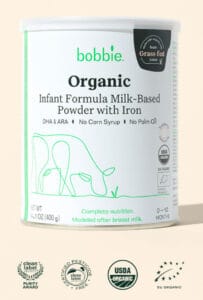
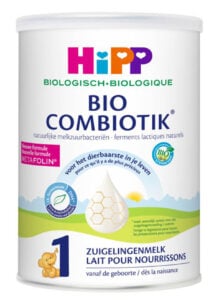
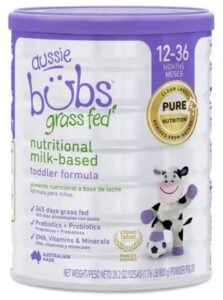
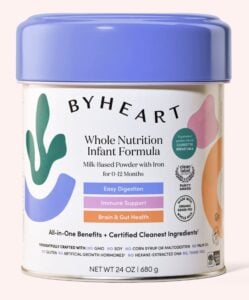
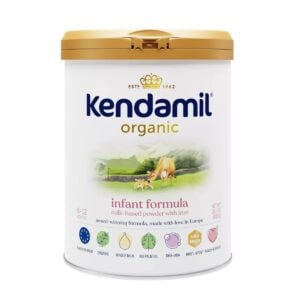
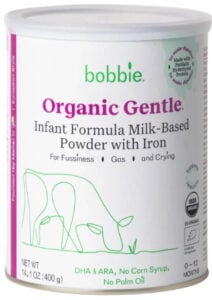
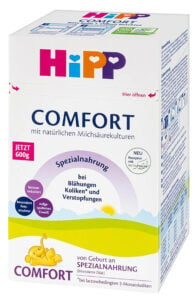

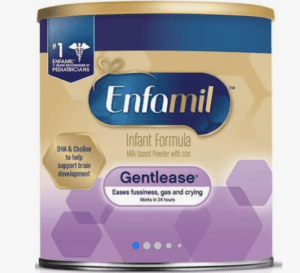
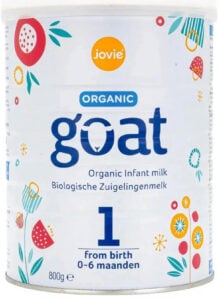
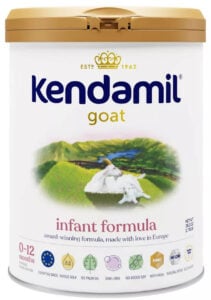
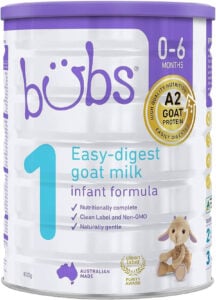
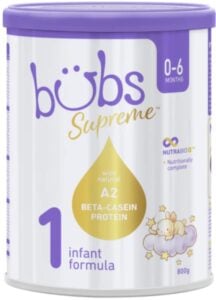
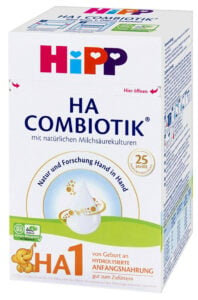
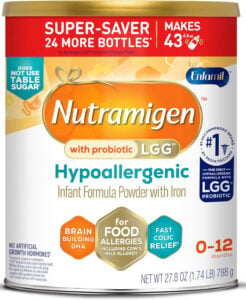
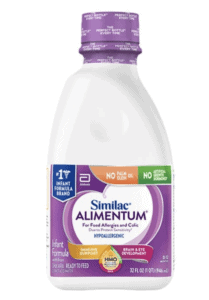
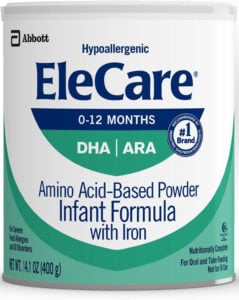
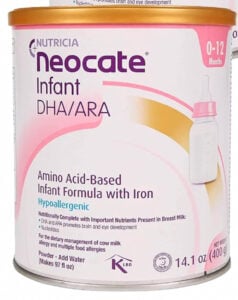
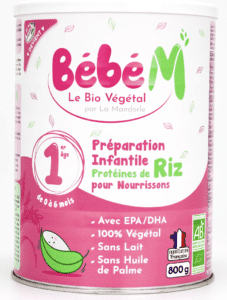
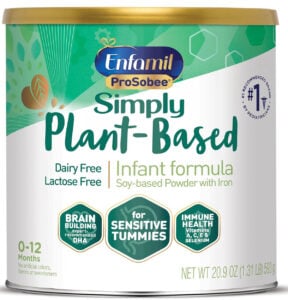
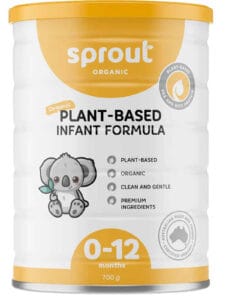
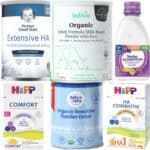
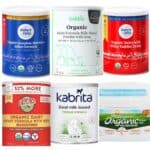
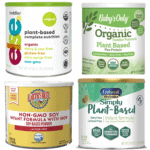








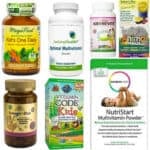
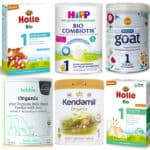



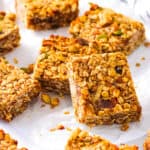




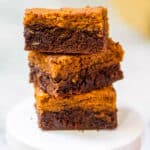



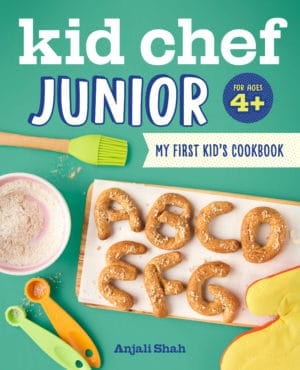


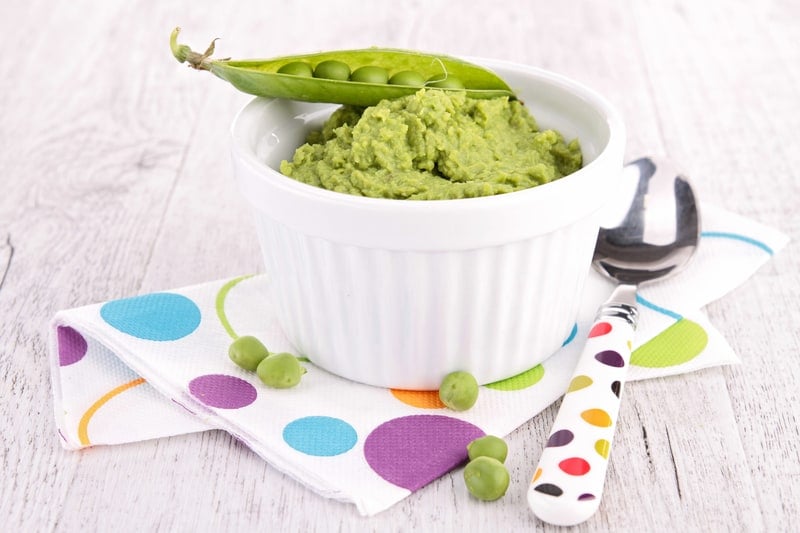



Any thoughts on the formula Pepticate? My little one is much better on this but still has gas pain a few times a day. Thinking to try another hydrolysed formula or amino acid based but there isn’t great amino acid based options because of all the corn syrup as primary ingredient
Hi! For a hypoallergenic formula Pepticate is pretty good – it does have maltodextrin as the first ingredient but at least it doesn’t have syrup solids! If your baby is doing ok on it, you could just stick with it. Alternatively, yes the next step would be to move to an amino acid formula and in that case you don’t really have a choice but to use one of the amino acid formulas available (which I agree are not ideal because of the corn syrup solids!)